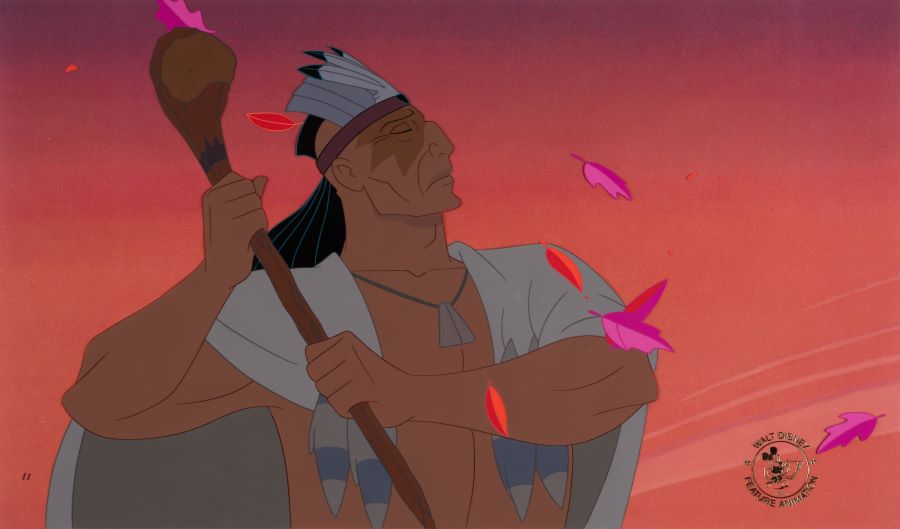The name of the ship that the Pilgrims sailed to Plymouth on and on which the Mayflower Compact was written.
Mayflower
The main native tribe in the Delaware valley before the Europeans.
Lenni Lenape
This town, named after King James I, was the first (lasting) British settlement in North America.
Jamestown
The western part of the colonies (up to and even past the Appalachians) primarily inhabited by Scots-Irish and which was very sparsely and primitively settled.
The only colony founded as a religious haven (for Catholics).
Maryland
The first governor of Massachusetts, who helped to found Boston and talked to the Puritans about founding "a city on a hill".
John Winthrop
The first city in the middle colonies which was originally Dutch and attracted many people because of its religious and cultural toleration. Its last Dutch governor was Peter Stuyvesant.
New Amsterdam/New York
This man was "saved" by Pocahontas after being captured by the Powhatan and set up for a mock execution. He also mapped out New England and wrote "The Generall Historie of Virginia".
John Smith
This nation began the Atlantic slave trade when it sailed along the west coast of Africa in 1441. It by far outstripped any other nation in its involvement in the slave trade for the next 400 years.
Portugal
Joint-stock company.
What was the dominant tribe the Puritans encountered in what is now Massachusetts?
Wampanoag
The Quaker who gained a charter for Pennsylvania from King Charles II in lieu of money the king owed his family.
William Penn
The tribe that was in Virginia before Europeans (Hint: Their chief also went by this name.)
Powhatan

The ship that first brought slaves to Jamestown in 1619.
The White Lion
A written grant by a country's legislative or sovereign power, by which a body such as a company, college, or city is founded and its rights and privileges defined.
Charter
The name for the period of Puritan migration to New England from 1620-1640.
The Great Migration
The egalitarian, nonviolent Christian sect formed in 1652 by George Fox that focused on adherents' "inner light," held silent services, and was the predominant faith in early Pennsylvania.
Quakerism
Younger sons of aristocrats looking to get rich.
The name given to the trade between Africa, Europe, and North America.
Triangle Trade
The system by which settlers who brought others with them or encouraged others to come to the colonies were given a certain amount of land per immigrant.
Headright system
What was unique about the demographics of those who came from England to New England?
They were closer to the demographic makeup of England-- they came over in families, and were all ages and sexes, not just young men.
The colony that, prior to 1776, was known simply as "the three lower counties" of Pennsylvania.
Delaware
This governor of Virginia from 1642-1677 increased immigration to Virginia and advertised it as a place for fleeing Royalists after the English Civil Wars.
William Berkeley
The name given to enslaved peoples' journey across the Atlantic from Africa to North America.
The Middle Passage
How did climate influence the populations of both colonists and slaves in the Southern and New England colonies?
The colder climate in New England was healthier for colonists, who suffered a lower mortality rate than colonists in the Southern colonies, for whom the climate was too hot and often led to tropical diseases. However, the opposite was true of slaves, who died more often in the northern cold of respiratory infections, leading to a lower slave population in New England than the Southern colonies.
What is the difference between Puritans and Separatists?
Puritans believed they could purify the church from within-- Separatists believed that the church could not be saved, and that they needed to form their own.
The Pennsylvanian city that was the fastest growing and one of the most diverse cities in the colonies and which became rich through trade.
Philadelphia
What main cash crops were grown in the South?
1. Tobacco
2. Indigo
3. Rice
4. Cotton
Detail what kinds of good were EXPORTED FROM each part of the triangle trade. (Use vague terms; you don't have to be specific.)

North America: Raw materials.
Africa: Slaves.
Europe: Manufactured goods.
What were the main religions of each colonial region?
Southern Colonies-- Anglican
Middle Colonies-- Quakerism
New England-- Puritanism (later, Congregationalism)
Backcountry-- Catholic and Presbyterian